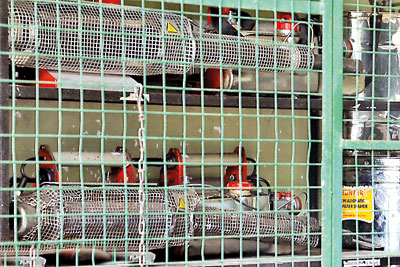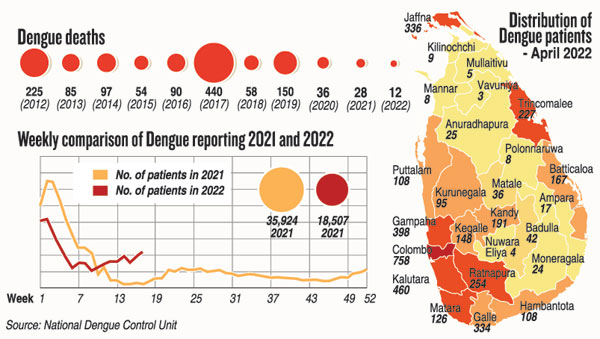News
Warning of dengue epidemic: Dollar crisis, fuel issues stall control programmes
Sri Lankans are being warned of a dengue epidemic, with prevention work in disarray due to the dollar crisis and fuel shortages, officials said.
“The present dollar crisis and fuel shortages have severely affected dengue-control programmes conducted at local government level. Medical officers of health (MOH) do not have sufficient fuel for vehicles and fogging equipment while the import of chemicals used for fogging has been stalled,” said the Public Health Officers’ Union Chief Upul Rohana.
He said PHIs were refusing to go on field visits because the meagre fuel allowance of just over Rs.1000 a month was woefully inadequate after the recent fuel price increases. 
“All dengue preventive work has come to a halt. The people have to be on alert if mosquito density is high in their areas and take preventive measures on their own,” he advised.
According to Health Ministry statistics, there were 4019 recorded dengue cases last month, a 90 percent rise when compared to the 2241 cases reported in April last year. The ministry said some 1102 dengue cases were reported in the first week of May whereas there were only 448 cases in the corresponding period in 2021.
The whole of last year recorded 28 deaths and 35,924 cases while for the first four months of this year, the ministry has recorded around 20,000 cases with 12 deaths.
Expressing concern over the sharp rise in dengue cases, the National Dengue Control Unit Consultant Community Physician Dr. Nimalka Pannilahetti said: “The country is heading for an outbreak of higher magnitude. Due to limitations in thermal fogging, the public and those managing construction sites, government quarters, religious places and schools should play a bigger role in eliminating breeding sites. Construction sites where work has come to a standstill pose a greater risk,” Dr. Pannilahetti warned.
She advised people to immediately test for dengue if fever persists for more than 24 hours.
The common symptoms of dengue fever include high fever, severe headache, severe pain behind the eyes, joint pain, muscle pain, bone pain, nausea, vomiting, rash and sometimes mild bleeding.
“This is a crucial time to avoid burdening the health sector. The delay in treatment increases the possibility of a patient going into a dengue hemorrhagic condition which requires longer hospital stay, medication and even loss of life,” she said.
She said the present intermittent rains would trigger breeding spots, and more cases could be be expected in the coming months.
Plastic containers, tins, clay pots, yoghurt and ice cream cups, bottles, cans, damaged ceramic items, coconut shells are some of the major breeding places for mosquitoes while roof gutters, concrete slabs, tyres, refrigerator trays, flower vases, ornamental ponds, non-functional cisterns, leaf axils, tree holes can also breed mosquitoes if clean water is collected.
“Due to COVID limitation and people’s fear of thefts, home inspections are currently limited. Therefore, it is in the hands of the public to keep their premises clean and free of mosquito breeding,” she said adding, “We have declared a dengue prevention week from May 18 to 24.”

The best way to say that you found the home of your dreams is by finding it on Hitad.lk. We have listings for apartments for sale or rent in Sri Lanka, no matter what locale you're looking for! Whether you live in Colombo, Galle, Kandy, Matara, Jaffna and more - we've got them all!

